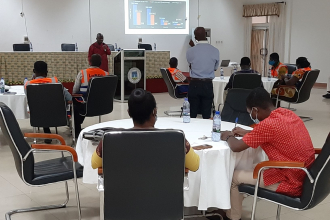Fisheries performance in Africa: An analysis based on data from 14 countries
The Fishery Performance Indicators is a data collection tool that allows collection of comparable fisheries data in the environmental, economic and community pillars even under data poor circumstances. In this paper, data collected for 35 fisheries in 14 African countries are analyzed and compared to global averages. Similar to a previous global analysis, the different pillars of sustainability were positively correlated. The results are even more pronounced for Africa than globally.



